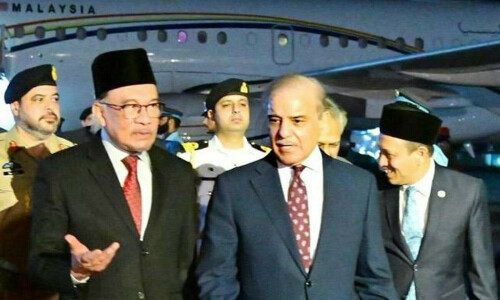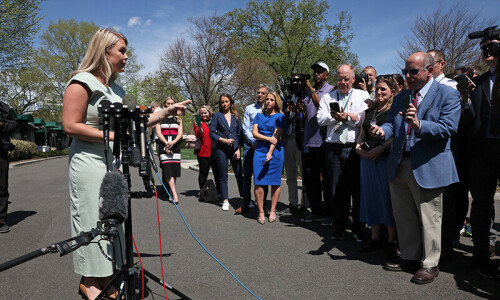THE absence of decent and affordable healthcare in the country continues to ruin lives. An example of this is evident in the findings of an inquiry committee of the KP health department: in North Waziristan tribal district, 38 health centres have been established in private hujras, with landowners obtaining false OPD slips to create the impression of a functional facility; 20pc of staffers earn a paycheck without performing their duties; and 538 out of the 2,818 employees could not be verified. It was also noted that only 28 units were fitted out with 70pc of medical apparatus, while the rest faced a serious dearth of essential medicines, medical equipment, and basic devices, such as stethoscopes and thermometers.
When it comes to matters of life and death, the state seems unaffected. Although Pakistan has a lot of catching up to do — according to a WHO report for 2024, the country is far from achieving the global universal healthcare goal of 80pc — there is institutional reluctance to accept that an unhealthy populace with weakened abilities cannot prove productive for the economy. Indeed, it is a travesty that the physical and mental well-being of citizens does not receive significant space in the manifestos of political parties. This lack of political will towards safeguarding and investing in such a vital area has contributed to Pakistan’s negligible socioeconomic development. Prioritising quality health units is long overdue; international collaboration is needed and funds must be channelled towards the upgradation and expansion of the healthcare system. While healthcare is unsatisfactory in the urban areas, the rural areas have been deprived of even primary healthcare facilities. Moreover, for any progress to materialise, unscrupulous elements, such as those linked to North Waziristan’s sham health centres, must be penalised; the poor have no choice but to rely on the state for their health.
Published in Dawn, February 20th, 2025











































